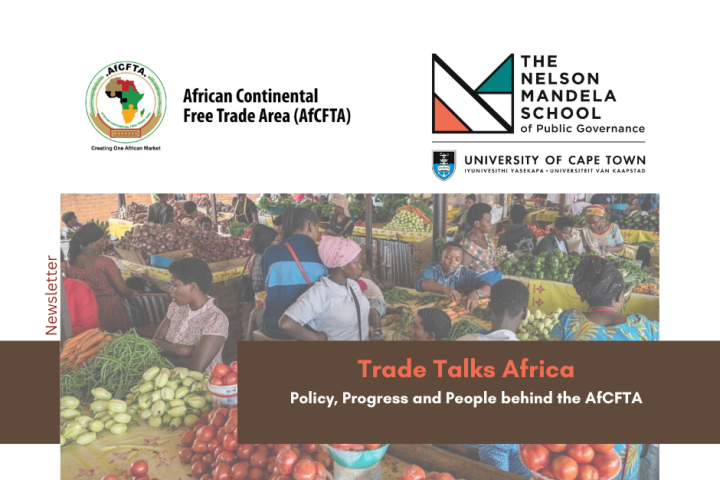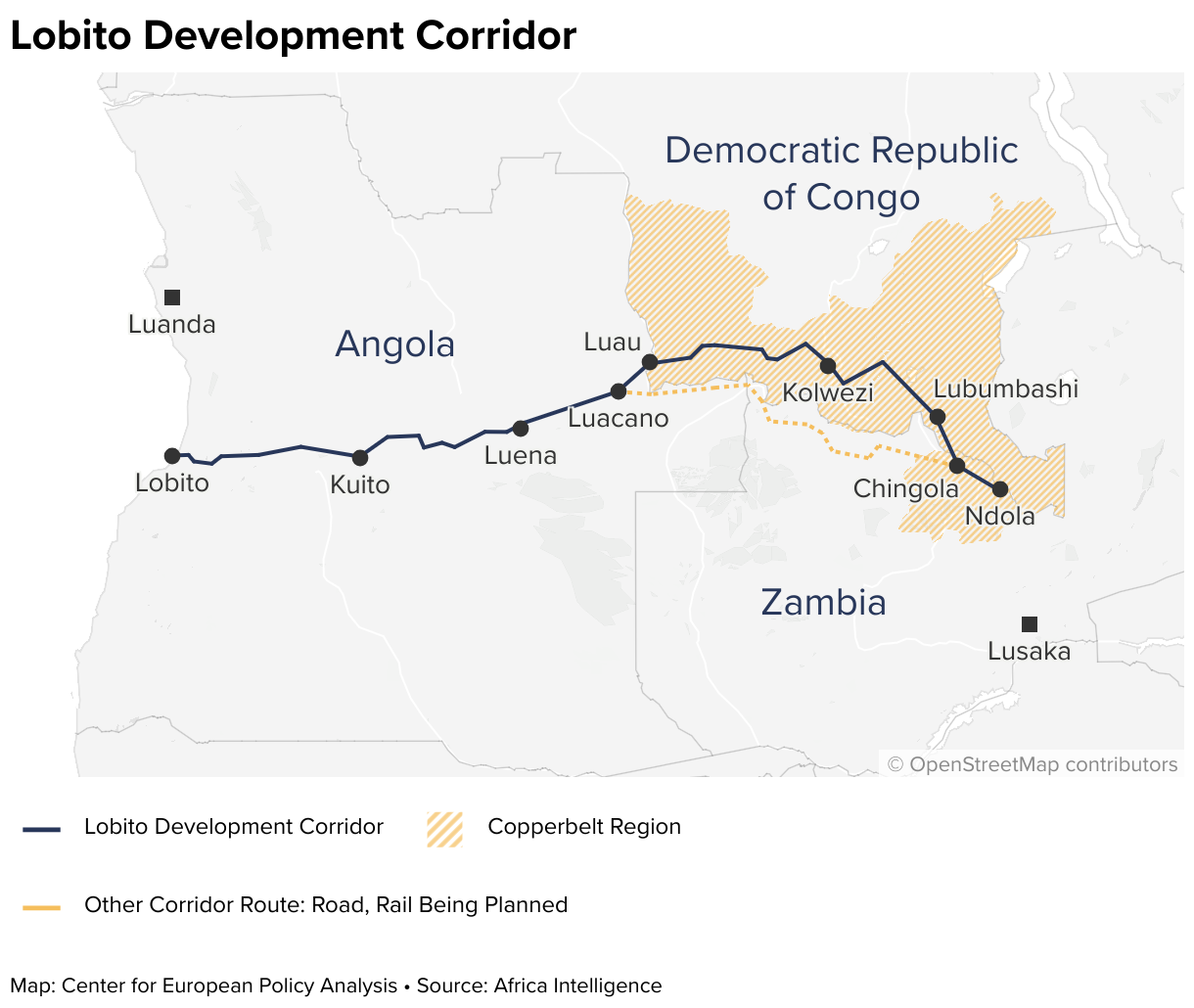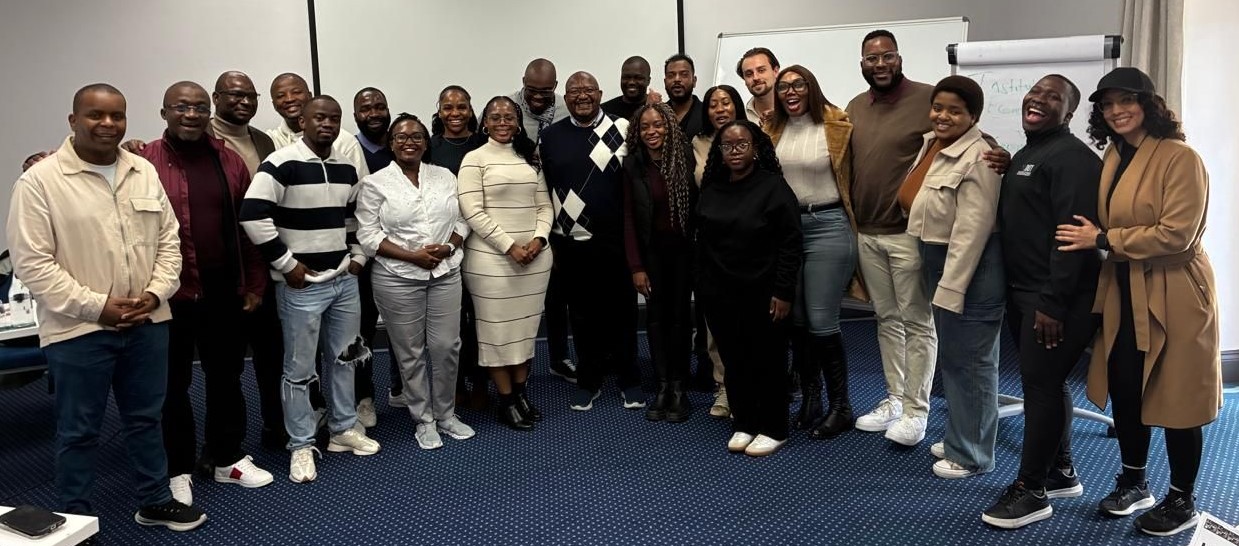A New Voice for African Trade Integration | Issue II

A New Voice for African Trade Integration
Welcome to the July issue of Trade Talks Africa. In this edition, we highlight key developments related to the African Continental Free Trade Area (AfCFTA). In June 2025, several key events took place, including the launch of trading under the AfCFTA in Namibia. There was also a focus on integrating the informal sector, discussions about the role of infrastructure, advancements in regional value chains, and ongoing negotiations regarding trade in services.
Namibia officially launched its participation in the AfCFTA during a ceremony in Walvis Bay. Additionally, Nigeria's Vice President emphasised the significance of incorporating the informal sector into the AfCFTA framework. Infrastructure development, particularly the Lobito Corridor, was identified as crucial for enhancing regional trade. Efforts to develop regional value chains, especially in the infant food and pharmaceutical sectors, were reviewed, alongside the ongoing negotiations for trade in services.
This second issue continues to share Africa’s integration story as it unfolds. With each publication, we look forward to providing you with insightful commentary, institutional updates, and a closer look at the people and policies shaping the AfCFTA.
Stay informed. Stay engaged.
Trade Talks Africa - editorial team
Noncedo Vutula, Agisanang Magooa, Tebogo Lefifi and Petunia Thulo
———————————————————————————————
Namibia begins trading under the AfCFTA Agreement

On 30 June 2025, Namibia officially started trading under the AfCFTA. This move represents significant progress in implementing the AfCFTA and illustrates the country’s commitment to promoting intra-African trade.
Integrating the informal sector
Nigeria's Vice President, Kashim Shettima, emphasised the importance of incorporating the informal sector into the African Continental Free Trade Area (AfCFTA) framework. He highlighted its potential to significantly contribute to the continent's economic success during his opening remarks at the 4th African Union Micro, Small, and Medium Enterprises (MSMEs) Forum in Abuja on 23 June 2025. This aligns with the AfCFTA's focus on small and medium enterprises as key drivers of trade and economic development in Africa.
Infrastructure and Regional Value Chains (RVCs)
The Lobito Corridor is a significant infrastructure project identified as a key driver for trade and connectivity in the region. This highlights the importance of infrastructure in achieving the goals of the African Continental Free Trade Area (AfCFTA). The necessity for accessible and affordable trade finance, along with the reduction of transport and logistics costs, was also emphasised. Located in Angola, the Lobito Corridor offers numerous business opportunities, particularly in logistics and mineral exports.
The Copperbelt region, which includes parts of the Democratic Republic of the Congo (DRC) and Zambia, is renowned as the world's leading producer of copper and cobalt. These materials are crucial for manufacturing batteries for electric cars and building technology globally.

Afreximbank Annual Meetings in Abuja
During the Afreximbank 32nd Annual Meetings (AAM2025), held in June 2025 in Abuja, Nigeria, an agenda item focused on the development of regional value chains, particularly in the sectors of baby food and pharmaceuticals. This initiative aims to reduce Africa's dependence on imports and promote inclusive growth. Special attention was given to empowering women-led micro, small, and medium enterprises (MSMEs) and recognising their vital role in local production and trade within the framework of the African Continental Free Trade Area (AfCFTA).
Trade in Services
Negotiations for the regulatory frameworks supporting the AfCFTA's trade in services are ongoing, with a focus on draft frameworks for financial and communication services. Additionally, the adoption of 24 schedules of specific commitments for the five priority service sectors—financial services, communication, transport, business services, and tourism—was also highlighted.
What's happening at the Nelson Mandela School?

From 23 June to 4 July, our current Master of Development Policy and Practice (MDPP) cohorts gathered in Cape Town for their teaching release block. This is always an inspiring and enriching time of learning, collaboration, and connection.
Students from across the African continent came together to share ideas, deepen their policy expertise, and expand their knowledge. The energy, insights, and commitment to public service that they brought to the classroom were truly inspiring.
Thank you to everyone who contributed to making this block a dynamic and engaging space. Your passion and dedication continue to shape the future of policy and development throughout Africa.
Are you ready to advance your career in public policy and make a meaningful impact across the continent? Applications for the 2026 MDPP cohort are now open! Apply now for the 2026 academic year—click here to learn more.
———————————————————————————————
Research Spotlight
Afreximbank released its flagship publication on the African Trade Report 2025: "African Trade in a Changing Global Financial Architecture" - African Export-Import Bank
Let's stay connected: subscribe to the Nelson Mandela School mailing list and connect with us on LinkedIn.
